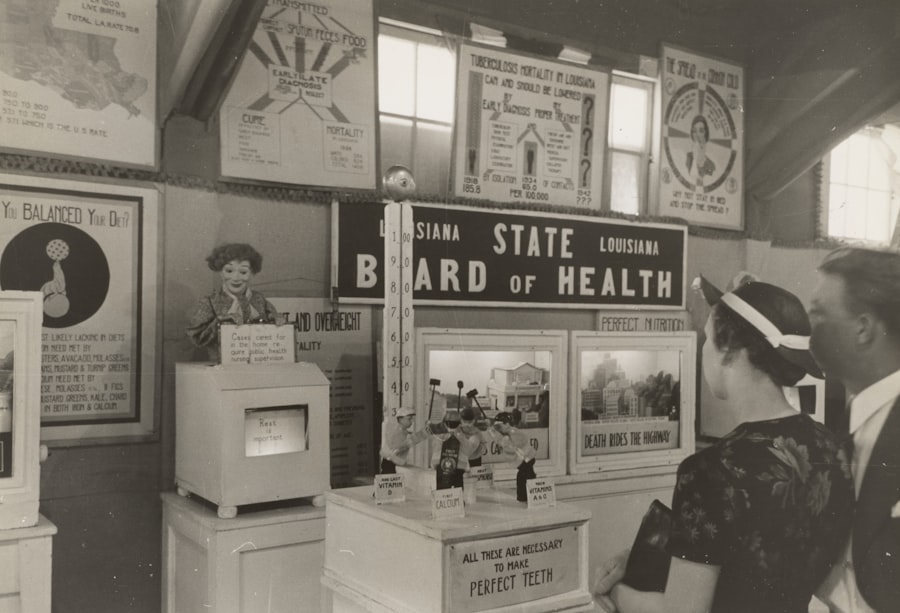As you step into the world of healthcare, you may find yourself surrounded by a rapidly evolving landscape shaped by artificial intelligence (AI). This technology is not just a buzzword; it is a transformative force that is redefining how healthcare is delivered, managed, and experienced. From enhancing patient care to streamlining administrative processes, AI is becoming an integral part of the healthcare ecosystem.
As you delve deeper into this subject, you will discover the myriad ways AI is influencing the industry and the implications it holds for healthcare professionals. The integration of AI into healthcare is not merely about replacing human roles; rather, it is about augmenting the capabilities of healthcare providers. You might be surprised to learn that AI can analyze vast amounts of data at speeds and accuracies that far exceed human capabilities.
This allows for more informed decision-making and improved patient outcomes. As you explore the current roles and responsibilities in healthcare, you will see how AI is poised to enhance these functions, making it essential for you to understand its impact on your profession.
Key Takeaways
- AI is revolutionizing healthcare by improving diagnosis, treatment, and patient care.
- Current roles in healthcare may shift towards more data analysis and technology management.
- AI has the potential to automate administrative tasks, allowing healthcare professionals to focus on patient care.
- AI can assist in diagnosis and treatment by analyzing large amounts of data and providing insights to healthcare professionals.
- The future of healthcare jobs will require upskilling and reskilling to adapt to the integration of AI technology.
Current Roles and Responsibilities in Healthcare
In your journey through the healthcare sector, you will encounter a diverse array of roles, each with its own set of responsibilities. From physicians and nurses to administrative staff and allied health professionals, each individual plays a crucial part in delivering quality care. You may find that the traditional roles are evolving as technology advances, with many professionals now required to adapt to new tools and methodologies that enhance patient care.
For instance, as a healthcare provider, you are likely involved in diagnosing conditions, developing treatment plans, and monitoring patient progress. However, with the advent of AI, your role may expand to include interpreting data generated by AI algorithms or collaborating with AI systems to improve diagnostic accuracy. This shift not only enhances your capabilities but also allows you to focus more on patient interaction and care, which are at the heart of healthcare.
Potential Impact of AI on Healthcare Jobs

As you consider the potential impact of AI on healthcare jobs, it is essential to recognize both the opportunities and challenges that lie ahead. While some may fear that AI will lead to job displacement, it is more accurate to view it as a catalyst for change. You may find that certain tasks traditionally performed by humans are being automated, but this does not necessarily mean a reduction in workforce; rather, it can lead to the creation of new roles that require different skill sets.
For example, as AI takes over routine tasks such as data entry or preliminary diagnostics, your role may shift towards more complex decision-making and patient interaction. This evolution can lead to a more fulfilling work experience as you engage in higher-level thinking and problem-solving. Moreover, the demand for professionals who can effectively work alongside AI systems will likely increase, creating new career paths in areas such as data analysis, AI ethics, and technology management.
Automation of Administrative Tasks
| Task | Automation Metric |
|---|---|
| Data Entry | Percentage of data entry tasks automated |
| Invoice Processing | Time saved through automation |
| Employee Onboarding | Reduction in onboarding time |
| Document Management | Number of documents processed per hour |
One of the most immediate areas where AI is making a significant impact is in the automation of administrative tasks. As you navigate the complexities of healthcare management, you may find that AI tools can streamline processes such as scheduling appointments, managing patient records, and billing. By automating these routine tasks, you can free up valuable time that can be redirected towards patient care and other critical responsibilities.
Imagine a scenario where an AI system handles appointment scheduling based on patient availability and physician schedules. This not only reduces the administrative burden on staff but also minimizes errors and enhances patient satisfaction. As you embrace these technological advancements, you will likely find that your role becomes more focused on strategic initiatives rather than mundane administrative duties.
This shift can lead to improved efficiency within healthcare organizations and ultimately better outcomes for patients.
AI’s Role in Diagnosis and Treatment
As you delve deeper into the clinical aspects of healthcare, you will discover that AI’s role in diagnosis and treatment is one of its most promising applications. With the ability to analyze vast datasets from medical records, research studies, and clinical trials, AI can assist in identifying patterns that may not be immediately apparent to human practitioners. This capability can lead to earlier diagnoses and more personalized treatment plans tailored to individual patients.
For instance, consider how AI algorithms can analyze imaging data to detect anomalies such as tumors or fractures with remarkable accuracy. As a healthcare professional, you may find yourself collaborating with these systems to validate findings and make informed decisions about patient care. The integration of AI into diagnostic processes not only enhances accuracy but also empowers you to provide more effective treatments based on data-driven insights.
The Future of Healthcare Jobs

Looking ahead, the future of healthcare jobs appears both exciting and uncertain. As AI continues to evolve, it will undoubtedly reshape the landscape of employment within the sector. You may find that certain roles become obsolete while new ones emerge, requiring a proactive approach to career development.
Embracing lifelong learning will be essential as you adapt to these changes and position yourself for success in an increasingly technology-driven environment. Moreover, the future may see a greater emphasis on interdisciplinary collaboration as healthcare professionals from various fields work together with AI systems.
This collaborative approach will be vital in navigating the complexities of modern healthcare delivery.
Upskilling and Reskilling Opportunities
As you contemplate your career trajectory in light of AI advancements, it is crucial to recognize the importance of upskilling and reskilling opportunities. The rapid pace of technological change means that continuous education will be key to remaining relevant in your field. You may want to explore training programs or certifications that focus on AI applications in healthcare, data analysis, or digital health technologies.
Many organizations are already investing in training initiatives to help their workforce adapt to new technologies. By taking advantage of these opportunities, you can enhance your skill set and position yourself as a valuable asset within your organization. Additionally, seeking mentorship or networking with professionals who have successfully navigated similar transitions can provide valuable insights and guidance as you embark on this journey.
Ethical and Legal Considerations
As you engage with AI in healthcare, it is essential to consider the ethical and legal implications that accompany its use. The integration of AI raises important questions about patient privacy, data security, and accountability. You may find yourself grappling with issues such as informed consent when utilizing AI-driven tools for diagnosis or treatment decisions.
Moreover, as AI systems become more autonomous, determining liability in cases of error or malpractice becomes increasingly complex.
Engaging in discussions about these topics within your professional community can help foster a culture of responsibility and transparency as you navigate this new terrain.
Patient Care and AI
At the heart of healthcare lies patient care, and as you explore the intersection of AI and patient interactions, you will discover both challenges and opportunities. While AI has the potential to enhance patient experiences through personalized treatment plans and improved communication channels, it also raises concerns about depersonalization in care delivery. You may find yourself reflecting on how to strike a balance between leveraging technology and maintaining meaningful connections with patients.
Consider how AI-powered chatbots can provide patients with immediate responses to their inquiries or assist them in managing chronic conditions through reminders and educational resources. While these tools can enhance accessibility and efficiency, it is crucial for you to ensure that they complement rather than replace human interaction. Building rapport with patients remains essential for fostering trust and understanding their unique needs.
The Role of Healthcare Professionals in AI Implementation
As a healthcare professional navigating this evolving landscape, your role in the implementation of AI technologies cannot be overstated. You are not just a passive recipient of these advancements; rather, you play an active role in shaping how they are integrated into clinical practice. Your insights into patient needs and workflows are invaluable in ensuring that AI tools are designed with real-world applications in mind.
Collaboration with technology developers will be key as you provide feedback on usability and effectiveness from a clinical perspective. By advocating for user-friendly interfaces and ensuring that AI systems align with best practices in patient care, you can help bridge the gap between technology and clinical application. Your involvement in this process will ultimately contribute to more successful outcomes for both patients and healthcare providers.
Navigating the Future of Healthcare Jobs
As you reflect on the future of healthcare jobs in light of AI advancements, it becomes clear that adaptability will be your greatest asset. The landscape is changing rapidly, presenting both challenges and opportunities for professionals like yourself. Embracing lifelong learning, seeking out upskilling opportunities, and engaging with ethical considerations will be essential as you navigate this new terrain.
Ultimately, your role as a healthcare provider will continue to evolve alongside technological advancements. By remaining open-minded and proactive in your approach to integrating AI into your practice, you can contribute to a future where technology enhances rather than diminishes the human touch in healthcare. As you embark on this journey, remember that your expertise and compassion will always be at the forefront of delivering quality care in an increasingly complex world.
In the rapidly evolving landscape of healthcare, the integration of artificial intelligence (AI) is a topic of significant interest and debate. Many wonder whether AI will eventually replace healthcare jobs or simply transform them. An insightful article that delves into this subject can be found on How Wealth Grows, where the potential impacts of AI on the healthcare industry are explored in depth. The article discusses how AI can enhance efficiency and accuracy in medical practices, potentially reshaping roles rather than eliminating them. For a comprehensive understanding of this topic, you can read more about it on their website.
FAQs
What is AI?
AI, or artificial intelligence, refers to the simulation of human intelligence in machines that are programmed to think and act like humans. This includes tasks such as learning, problem-solving, and decision-making.
What are healthcare jobs?
Healthcare jobs encompass a wide range of professions within the healthcare industry, including doctors, nurses, pharmacists, medical technicians, and administrative staff.
Will AI take healthcare jobs?
AI has the potential to automate certain tasks within the healthcare industry, such as administrative duties, data analysis, and diagnostic processes. While this may lead to some job displacement, it is also expected to create new roles and opportunities within the healthcare sector.
How will AI impact healthcare jobs?
AI is expected to enhance the efficiency and accuracy of healthcare services, leading to improved patient care and outcomes. It may also lead to the creation of new roles that require skills in AI technology and data analysis.
What are the potential benefits of AI in healthcare?
The potential benefits of AI in healthcare include improved diagnosis and treatment, enhanced operational efficiency, better patient outcomes, and the ability to analyze large volumes of medical data to identify trends and patterns.
What are the potential challenges of AI in healthcare?
Challenges associated with AI in healthcare include concerns about data privacy and security, the need for regulatory oversight, potential job displacement, and the ethical implications of using AI in medical decision-making.
How can healthcare professionals prepare for the impact of AI?
Healthcare professionals can prepare for the impact of AI by staying informed about advancements in AI technology, developing skills in data analysis and AI applications, and embracing opportunities for continuing education and training in AI-related fields.
